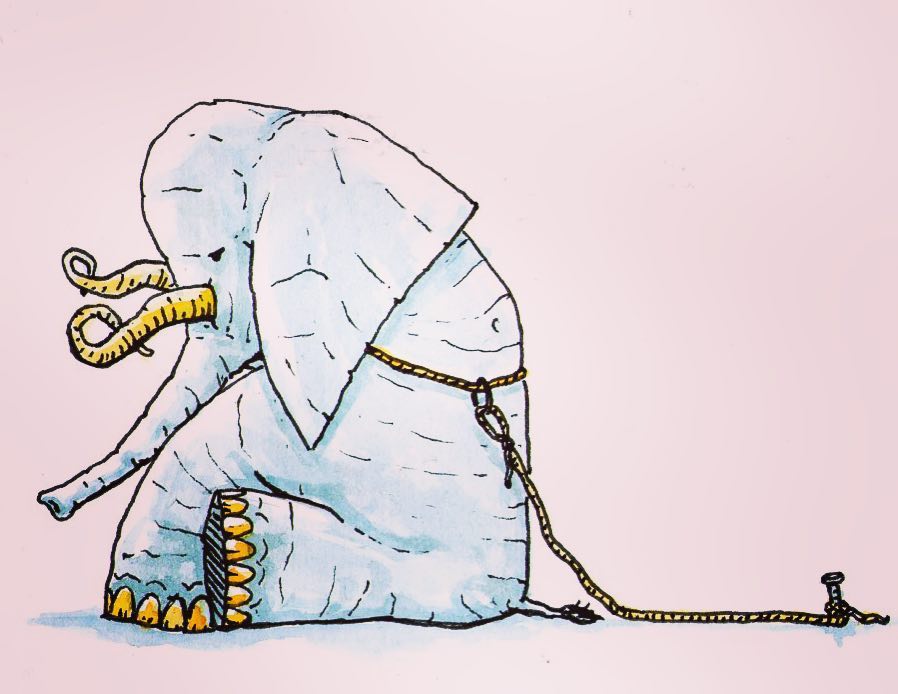
Most of us have experienced this situation at least some time in our life when we have resigned from a situation assuming that we will not succeed at it. We imagine the rejection or the embarrassment that comes from failure, and opt-out. Maybe this fear of failure is a learned behaviour. Psychologists have studied the impact of this in animals, children and adults too!
This is also part of “conditioning”, a process in which we train animals with rewards and punishments.
During one such research experiment, a marine biologist placed a shark into a large holding tank and then released several small bait fish into the tank. As you would expect, the shark quickly swam around the tank, attacked, and ate the smaller fish.
In the second part, the marine biologist inserted a strong piece of clear fibreglass into the tank, creating a partition. She then put the shark on one side of the fibreglass and a new set of bait fish on the other. Again, the shark quickly attacked.
However, this time the shark slammed into the fibreglass divider and bounced off. Undeterred, the shark kept repeating this behaviour every few minutes to no avail. Meanwhile, the bait fish swam around unharmed in the second partition. Eventually, about an hour into the experiment, the shark gave up.
This experiment was repeated several dozen times over the next few weeks. Each time, the shark got less aggressive and made fewer attempts to attack the bait fish, until eventually, the shark got tired of hitting the fibreglass divider and simply stopped attacking altogether.
The marine biologist then removed the fibreglass divider, but the shark didn’t attack. The shark finally had been trained to believe a barrier existed between it and the bait fish and didn’t attempt to do anything. It had presumed its failure and stayed in its line.
This is how we train strong elephants tied with a measly rope on a pole to stay put in their place. This is true even for humans too!
When we feel that we had no control over the past events of their lives, we continue to believe in our own helplessness. We think that nothing they do will ever change the outcome of an event. Even when the situation has objectively changed, we have learned the behaviour of fear or helpless resignation. We often left thinking that they should not even bother trying.
Someone rightly said, “Whether You Think You Can, or Think You Can’t … You’re Right.”

Very true sir have experienced